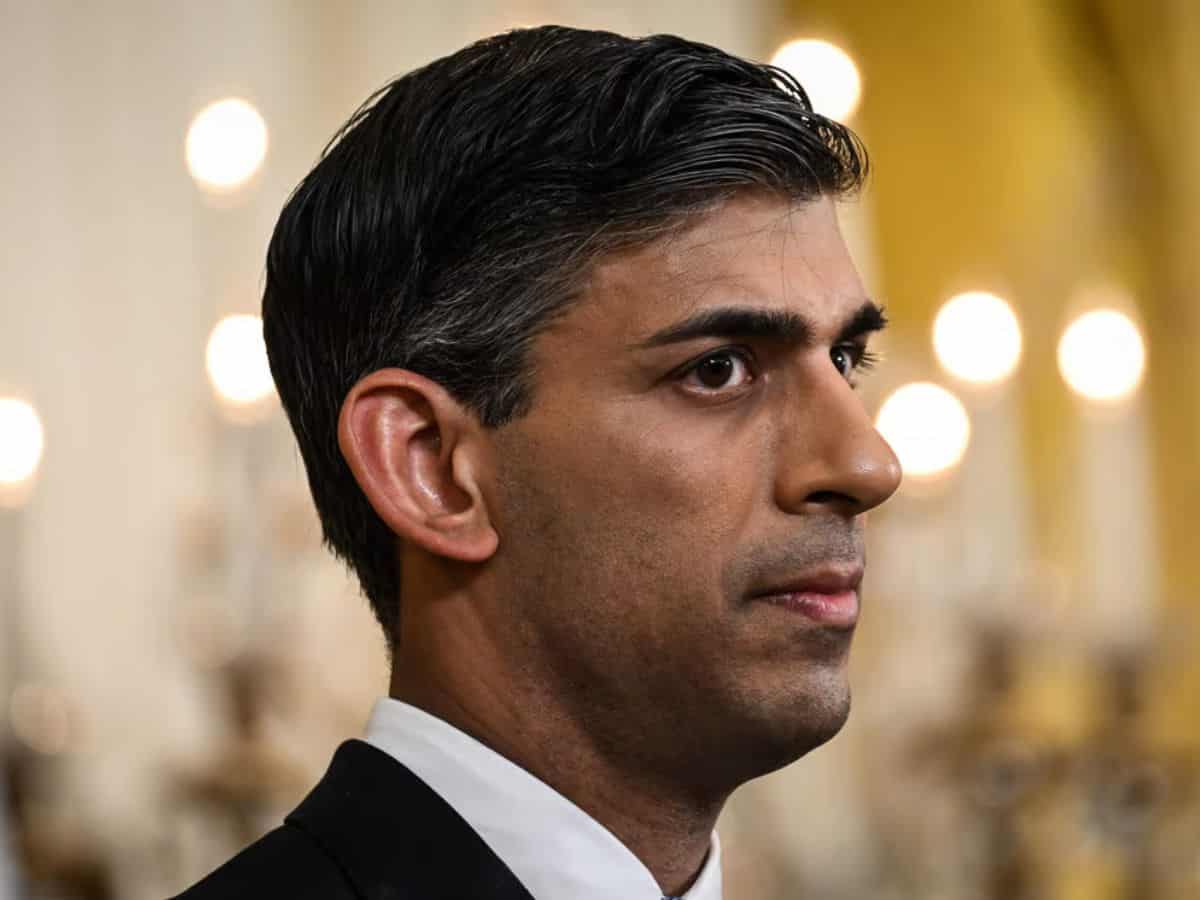
London: UK Prime Minster Rishi Sunak said “nothing will stand in our way” of getting flights to Rwanda off the ground, as the government braced itself for legal challenges to the scheme to send asylum seekers to the east African country.
The Safety of Rwanda (Asylum and Immigration Bill) cleared Parliament shortly post midnight after peers backed down, ending resistance to the scheme.
Sunak hopes the Rwanda scheme will deter migrants from seeking to cross the English Channel, but on Tuesday morning a small boat was seen leaving the Calais shoreline with French police looking on.
Preparations for the first flights to Rwanda will begin within days, with asylum seekers who could be relocated being identified and potentially detained.
Charter planes are expected to leave for Rwanda in 10-12 weeks, with Sunak promising “multiple flights a month”, although ministers conceded numbers being sent to Kigali would be small at first.
The prime minister said: “The passing of this landmark legislation is not just a step forward but a fundamental change in the global equation on migration.
“We introduced the Rwanda Bill to deter vulnerable migrants from making perilous crossings and break the business model of the criminal gangs who exploit them.
“The passing of this legislation will allow us to do that and make it very clear that if you come here illegally, you will not be able to stay.
“Our focus is to now get flights off the ground, and I am clear that nothing will stand in our way of doing that and saving lives.”
Sunak has insisted that he will not let the European Court of Human Rights block flights to Rwanda.
The court is an institution of the Council of Europe, which urged Sunak to abandon the Rwanda plan.
The council’s human rights commissioner Michael O’Flaherty said: “The adoption of the Safety of Rwanda (Asylum and Immigration) Bill by the UK Parliament raises major issues about the human rights of asylum seekers and the rule of law more generally.
“The UK Government should refrain from removing people under the Rwanda policy and reverse the Bill’s effective infringement of judicial independence.”
The charity Freedom from Torture, alongside Amnesty International and Liberty, criticised the Government for ignoring the findings of the Supreme Court, which ruled the policy was unlawful in November.
The groups said the Bill posed “a significant threat to the rule of law” by undermining what protected people from an abuse of power by the state, and described Parliament as a “crime scene”.
Ministers are braced for legal challenges to the scheme, and the judiciary has made 25 courtrooms available to deal with cases.
Illegal migration minister Michael Tomlinson told Times Radio: “It’s inevitable, I’m afraid, that there will be challenges.”
However, ministers believe that the new law will dramatically restrict the ability of migrants to legally avoid being sent to Rwanda.
Tomlinson suggested that thousands of people could eventually be sent to Rwanda, comparing it to the deal signed to return Albanians to their home country.
After the Safety of Rwanda Bill receives royal assent – expected in the coming days – the process of ratifying a treaty drawn up with Rwanda will begin.
Home Secretary James Cleverly said: “The Act will prevent people from abusing the law by using false human rights claims to block removals.
“And it makes clear that the UK Parliament is sovereign, giving the Government the power to reject interim blocking measures imposed by European courts.
“I promised to do what was necessary to clear the path for the first flight.
“That’s what we have done.
“Now we’re working day in and day out to get flights off the ground.”
The unelected chamber ended the parliamentary deadlock after MPs rejected a requirement that Rwanda could not be treated as safe until the secretary of state, having consulted an independent monitoring body, made a statement to Parliament to that effect.
Lord Anderson, the crossbench peer responsible for the call, said: “The time has now come to acknowledge the primacy of the elected House and to withdraw from the fray.”
Earlier in the upper House, Labour did not press its demand for the Bill to include an exemption from removal for Afghan nationals who assisted British troops, after what critics hailed as a concession.
The Government promised it would not send those who were eligible under the Afghan Relocations and Assistance Policy (Arap) to Rwanda.
Shadow home secretary Yvette Cooper called the Bill “an extortionately expensive gimmick rather than a serious plan to tackle dangerous boat crossings”.
“The Rwanda scheme will cost more than half-a-billion pounds for just 300 people, less than 1% of asylum seekers here in the UK – and there is no plan for the 99 per cent,” she said.
“Instead of spending $2.4 million per asylum seeker on this failing scheme, they should be putting that money into boosting our border security instead – that is Labour’s practical plan.”
Rwandan government spokeswoman Yolande Makolo said: “We are pleased that the Bill has been passed by the UK Parliament.
“However, it doesn’t alter what we have always known to be true: we have worked hard over the last 30 years to make Rwanda a safe and secure country for Rwandans and non-Rwandans alike.
“This is why we are able to offer safety to the over 130,000 refugees already in Rwanda, and why we partner with the UNHCR to bring migrants stuck in Libya to safety in our country.
“We are committed to the migration and economic development partnership with the UK and look forward to welcoming those relocated to Rwanda.”
